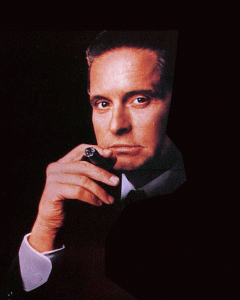So, straight to the chase, on Christmas, about half a month ago, The Wolf of Wall Street was released as Martin Scorsese’s latest cinematic outing.

His return to comedy since the 80s release of After Hours and The King of Comedy, Scorsese’s film was a focus on the real-life illicit financial activities of Jordan Belfort (Leonard DiCaprio), the founder of Oakmont-Stratton and career fraudulent stock salesman. The movie’s focus largely was based on the extravagant manner in which Jordan carried his life, business-wise and privately. The stylistic approach was reminiscent of Scorsese’s classic Goodfellas, where Henry Hill and Jordan both express a fascination with their own business atmospheres and where they each pursue their dream jobs (if you can call such illegal professions jobs) with a hunger unmatched, reach their goal and then, like Icarus, fly too close to the sun, resulting in their spiral dive downward (humorously foreshadowed in Wolf’s opening by an ill-advised coke-fuelled helicopter flight manned by Belfort). The rest of the movies’ running time has Hill and Belfort, respectively scrambling to land on their feet.
I overall enjoyed The Wolf of Wall Street. I found it be a lot of fun and a very surprisingly successful experiment in comedy for DiCaprio (an actor I don’t usually go as crazy for as the rest of the world does), Jonah Hill (an actor I’m finding myself enjoying more and more after disliking his earlier works) and Martin Scorsese, who proves he can still make people laugh. There were some editing “wut” moments for the film, which I credit to the rushed post-production process, acting as distractions, but overall, it was a 3-hour movie that felt like an hour and a half. I seem to not be alone in this enjoyment of the film – On Sunday, The Wolf of Wall Street garnered a Golden Globe for DiCaprio’s performance after receiving two nominations (the other nomination was in Best Motion Picture – Musical or Comedy; which I personally thought it should have won among the other nominees). Peter Travers and the American Film Institute have both placed the movie on their 2013 Top Ten Lists.

The problem is that there seems to be a significant vocal opposition to the film’s existence on the stance of morality. The film has been received by many audiences as a glorification of the criminal activities of Belfort through the music video stylizations, the focus on Belfort being free of scrutiny and, according to some people, a lack of a severe punishment for Belfort’s actions. As a result, they found the film severely amoral.
There’s a lot I find to disagree with this and I can’t really support my statements without spoiling the movie, so if you have no watched it yet – heads up. Also heads up to the people who wish to find this review in a scholarly manner, because I’m about to abandon that form. My apologies for lack of professionalism in the case that I cross that line.
To begin with, I don’t need to be told Jordan Belfort is a bad person. If you do need to be told that someone who cheats people like Belfort does many times throughout the movie, who doesn’t care about others, who possibly rapes his wife and then afterward beats her as he attempts to kidnap their child and who does the excessive amounts of adultery and drugs that Belfort does is a bad person, you have a problem with needing your hand held. This is not the Hays Code anymore. We shouldn’t have to abide to conservative lens in less-than-admirable lifestyles. The late thrash metal guitarist Jeff Hannemann said it better when his band Slayer was put under scrutiny for writing a song about Josef Mengele in an omniscient tone. And he’s right. The fact that the person is a bad should be obvious, the actions he performs victimizes others and the lifestyle he lives is absolutely decadent and self-serving. It’s as plain as day on your face.

That’s ignoring the fact that the artist has very little responsibility of the audience. There will probably be some people who misinterpret the story the wrong way and take it as a promotion of the glitzy lifestyle of a criminal stock broker, much like Gordon Gekko and Tony Montana were made a cultural icon when Wall Street and Scarface came out in 1987 and 1983, respectively. But unfortunately, misinterpretation is a part of art and the artist’s devotion is only to communicating his own message and clearly as possible. Scorsese’s message is not missed by a strict majority.


He’s humiliating the characters. Scorsese is humiliating Belfort and Donnie Porush (portrayed in the movie under the name “Donnie Azoff” by Jonah Hill). This is a comedy. This is a satire. Stratton-Oakmont is a stock firm of buffoons who are only able to work well because they idolize the one man who tells them how to walk and talk. They have no honor among thieves. They prove that they essentially are just a pack of wolves who are looking for the next out.
Which, to go against the consequences argument, is exactly what happens to Belfort. He finds out the hard way that Donnie is not trustworthy – Donnie first gets Brad Bodnick (Jon Bernthal) imprisoned through his foolishness, nearly incriminates Belfort in a foolhardy phone call on drugs and then betrays Belfort to FBI Agent Patrick Denham (Kyle Chandler) at the moment where Belfort is looking out for him most. Jordan discovers the snake that his closest partner is, let alone the loss of his income and family from his own deceitfulness and aggressive behavior. Belfort gets his just desserts at the end of the movie. He has to start from square one, unhappily teaching people how to sell pens in the gaping grinning eyes of an audience far from his home nest of New York.
But, even that is ignoring what the true message of the satire is, when it’s staring right at us in the final shot of all the happy people.
We are the suckers. We let this guy take our cash watching this film when we should have been on the lookout for people like Belfort who look for anyway to gain a quick buck. Like the ending of Fritz Lang’s M condemns us for putting our children in an easy spot to be murdered, the ending of The Wolf of Wall Street condemns us for being put on an easy spot to be fooled and shaken empty by men like Belfort.
Luckily, that’s not the real-life case with the movie, as Belfort is legally required to give up royalties for the film to pay damages for his victims, a deed he was previously willing to perform without court orders. But it insists we keep ourselves on our toes. After all, its our lives, not Stratton-Oakmont’s. As far as they’re concerned, they owe us nothing.
Now that I am done defending the movie, what does this reception for The Wolf of Wall Street say about how we as an audience take satire? Is satire truly a good thing in art? Is it really helping in the manner that the filmmaker intends it to help?
Look at all the miscommunications with recent films – People have been inspired by Baz Luhrmann’s adaptation of The Great Gatsby to create copy-cat parties, CoverGirl has been using the Hunger Games series’ Capitol celebrations as inspiration to unveil a new line of obnoxious make-up. It’s not something new to satire neither – Copycat Fight Clubs have been existing since the film’s opening, people took Natural Born Killers and Dexter as inspirations to go on mass murder sprees. Even the film Watchmen was made by Zack Snyder in an opposing tone as the original satirical graphic novel, despite copying the exact same look page for page. People condemned A Clockwork Orange for the same reasons as The Wolf of Wall Street. I actually have a humorous memory of arguing for Fargo‘s value as a film to a high school classmate of mine before surprising him by explaining the movie was a comedy and not a drama.

Like, I say, the artist’s devotion is only to his material and that’s where all his responsibilities lie. But it is still somewhat unpleasant to witness such messages be misinterpreted, especially in the case where it causes more social disorder or pain and suffering or the actions portrayed in the film to actually be recreated in a nightmarish Monkey See, Monkey Do scenario.
The silver lining is in the idea that a movie’s message is not missed by anyone. And if some people understand the point of the satire and communicate it to others, then perhaps all is not lost in art.
I don’t have a complete answer for the qualms with satire and I do want to acknowledge but it seems that culture is incomplete without satire, whether somebody gets it or not. To treat a severe topic with humor, sarcasm or wit is to provide a new form of wisdom that is previously unheard of. Some movies do fail to outright communicate the satirical nature of its work (*cough*ZackSnyder’sWatchmen*cough*), but different perspectives is important to any culture and we should not allow ourselves to shut it out from art simply because the message is missed. The signals are always going to come off as mixed, the people are rarely going to completely understand… their interpretation is of their own hand, much like the artist’s style is of his own.
They said what they felt they need to.



























